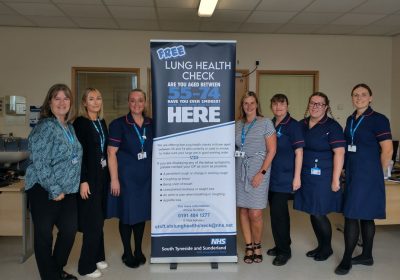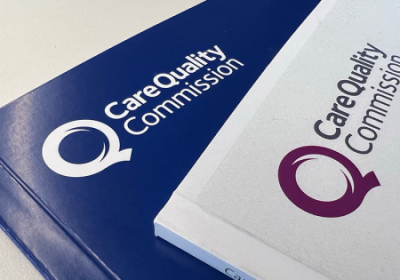The trust is using Robotic Process Automation (RPA) software robots, known as ‘digital workers’ by their fellow NHS colleagues, to handle referrals made by GPs more efficiently.
The software automates repetitive, digital tasks which have previously taken people lots of time.
Now, following its launch, the project has become an international award winner. It has collected a Regional All-Star title in the Rising Star category in the SS&C Blue Prism Customer Excellence Awards 2025.
Every year, STSFT receives more than 136,000 referrals for people who need investigations or an outpatient appointment. This includes patients being seen both for routine care, and for suspected cancer.
Since bringing in its digital workers, the trust has saved more than 8,000 hours of staff time. This has greatly helped to improve staff morale and job satisfaction whilst also speeding up access to care.
Previously, it could take up to 10 minutes for a member of staff register a referral. This now takes just four minutes, as the digital workers can work overnight, when its systems are not as busy.
Referrals are now available for review by clinical teams within 48 hours of being made, and in many cases, within 24 hours. Referrals for suspected cancer diagnoses are also prioritised.
The digital workers also book patients for lung cancer screening tests as part of the national NHS screening prevention programme.
This invites 55 to 74-year-olds who are smokers or formerly smoked to be screened, as they are most likely to develop the disease in their lungs.
Across Sunderland and South Tyneside there are around 60,000 people eligible for a lung check. Now that a digital worker undertakes this work, around 2,000 people are being booked in each month.
The trust’s digital workers can each cover the workload of three administration roles, but they have not taken the jobs of any NHS staff.
Instead, the technology has freed up time for human employees to focus on more complex tasks such as talking to patients to organise other parts of their care.
The digital workers can also work around the clock. Because they never tire like humans, the digital workers do not make mistakes.
Michael Forrest, Outpatient Access and Booking Manager, is part of the trust’s team who worked alongside partners e18 Innovation and SS&C Blue Prism to introduce the digital workers.
He said: “We’re delighted about how the digital workers are making a difference so far by helping us to see patients sooner and reducing risk to them.
“It’s especially important for people to get answers quickly if they are waiting to find out if they have cancer or not, and to get an appointment when they are waiting for treatment to start.
“It’s also helped the team, because it’s eased the stress of having that backlog of patients and knowing people are now being seen sooner.
“Looking after our team is so important. They’re now able to concentrate on more fulfilling, interesting work, because they’re not doing these labour-intensive, administrative tasks.”
Helen Bone, Lung Cancer Screening Programme Manager for the trust, added: “Our admin team can now focus on other key aspects of the Lung Screening Pathway.
“It has saved us hours of time each week and the positive impact cannot be underestimated.”
Vicky Mitchell, Executive Director of Planning and Business Development, said: “Using robotic automation and artificial intelligence is a key part of our digital strategy for the Trust and will be a key to everything we do for the future.
“The newly published NHS 10 Year Health Plan focusses on how we need to use digital solutions much more. Our first digital workers here at STSFT are already showing the productivity and efficiency gains we can make.
“Using this technology has helped plug gaps in our workforce, while looking after our fantastic admin team, who are working hard to make sure we see patients as quickly as we can.
“We are now looking at where we can roll out more automated processes in other parts of our outpatient services and building on the success of the digital workers in our scheduling teams.”
Photo:
Rebecca Dempster, Directorate Manager for Outpatients and Clinical Administration, Olive Williams, Electronic Referrals System Manager, Michael Forrest, Outpatient Access and Booking Manager, Vicky Mitchell, Executive Director of Planning and Business Development, Louise Gustavson, Professional Services (EMEA) Head of Healthcare business for SS&C Blue Prism and Graeme Miller, Business Change Manager for the Trust.






